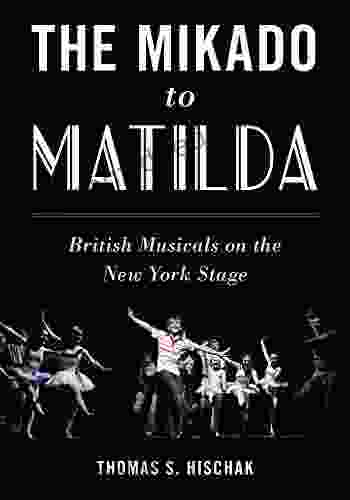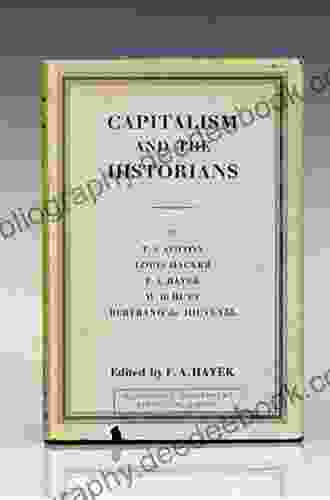Capitalism and the Historians: Hayek's Critique and the Conservative Tradition

Friedrich Hayek was one of the most influential economists and philosophers of the 20th century. He is best known for his work on the free market and the theory of spontaneous order. Hayek was also a trenchant critic of socialism and collectivism. In his book The Road to Serfdom, Hayek argued that government intervention in the economy leads to the erosion of individual liberty and the creation of a totalitarian state.
Hayek's ideas have been influential in the development of conservative thought. Conservatives have long argued that the free market is the best way to promote economic growth and prosperity. They also believe that government should play a limited role in the economy and that individuals should be free to pursue their own economic interests.
In recent years, Hayek's ideas have been used to justify a wide range of conservative policies, including tax cuts, deregulation, and privatization. However, some critics have argued that Hayek's ideas are based on a flawed understanding of history. They argue that Hayek's belief in the free market is based on a romanticized view of the past and that he ignores the role that government has played in promoting economic growth and prosperity.
4.4 out of 5
| Language | : | English |
| File size | : | 2815 KB |
| Text-to-Speech | : | Enabled |
| Screen Reader | : | Supported |
| Enhanced typesetting | : | Enabled |
| Word Wise | : | Enabled |
| Print length | : | 184 pages |
| Lending | : | Enabled |
In this essay, I will examine Hayek's critique of socialism and collectivism. I will also discuss Hayek's influence on conservative thought and the criticisms that have been made of his ideas.
Hayek's Critique of Socialism and Collectivism
Hayek's critique of socialism and collectivism is based on two main arguments. First, he argues that socialism and collectivism are incompatible with individual liberty. He believes that government control of the economy leads to the erosion of individual rights and freedoms. Second, Hayek argues that socialism and collectivism are inefficient economic systems. He believes that the free market is the best way to promote economic growth and prosperity.
Hayek's first argument against socialism and collectivism is that they are incompatible with individual liberty. He believes that government control of the economy leads to the erosion of individual rights and freedoms. He argues that in a socialist or collectivist society, the government has the power to dictate what people can produce, what they can consume, and what they can do with their property. This, he argues, undermines the individual's ability to make choices and live their lives as they see fit.
Hayek's second argument against socialism and collectivism is that they are inefficient economic systems. He believes that the free market is the best way to promote economic growth and prosperity. He argues that the free market allows individuals to pursue their own economic interests, which leads to innovation and economic growth. He also argues that the free market is more efficient than government planning, which he believes is often wasteful and inefficient.
Hayek's critique of socialism and collectivism has been influential in the development of conservative thought. Conservatives have long argued that the free market is the best way to promote economic growth and prosperity. They also believe that government should play a limited role in the economy and that individuals should be free to pursue their own economic interests.
In recent years, Hayek's ideas have been used to justify a wide range of conservative policies, including tax cuts, deregulation, and privatization. However, some critics have argued that Hayek's ideas are based on a flawed understanding of history. They argue that Hayek's belief in the free market is based on a romanticized view of the past and that he ignores the role that government has played in promoting economic growth and prosperity.
Hayek's Influence on Conservative Thought
Hayek's ideas have been influential in the development of conservative thought in a number of ways. First, Hayek's critique of socialism and collectivism has provided conservatives with a powerful intellectual weapon to use against the left. Second, Hayek's emphasis on the importance of individual liberty has resonated with conservatives who believe that government should play a limited role in the lives of individuals. Third, Hayek's belief in the free market has led conservatives to support policies that promote economic growth and prosperity.
Hayek's critique of socialism and collectivism has been used by conservatives to argue against a wide range of policies, including nationalization, price controls, and welfare programs. Conservatives have also used Hayek's ideas to argue against the expansion of the state and the growth of government bureaucracy.
Hayek's emphasis on the importance of individual liberty has resonated with conservatives who believe that government should play a limited role in the lives of individuals. Conservatives believe that individuals should be free to make their own choices and live their lives as they see fit. They also believe that government should not interfere in the free market or impose excessive regulations on businesses.
Hayek's belief in the free market has led conservatives to support policies that promote economic growth and prosperity. Conservatives believe that the free market is the best way to create jobs, raise wages, and improve the standard of living for all Americans. They also believe that government should not interfere in the free market or impose excessive regulations on businesses.
Criticisms of Hayek's Ideas
Hayek's ideas have been criticized by a number of scholars, including historians, economists, and political scientists. Some critics have argued that Hayek's critique of socialism and collectivism is based on a flawed understanding of history. They argue that Hayek ignores the role that government has played in promoting economic growth and prosperity. Others have argued that Hayek's belief in the free market is based on a romanticized view of the past and that he ignores the negative consequences that can result from unregulated capitalism.
One of the most common criticisms of Hayek is that he ignores the role that government has played in promoting economic growth and prosperity. Critics argue that Hayek's belief in the free market is based on a romanticized view of the past and that he ignores the many ways in which government intervention has helped to create a more prosperous and equitable society.
For example, critics point to the role that government has played in providing infrastructure, education, and healthcare. They argue that these government programs have helped to create a more productive workforce and a more prosperous economy. Critics also argue that government regulation has helped to protect consumers and workers from the negative consequences of unregulated capitalism.
Another common criticism of Hayek is that he ignores the negative consequences that can result from unregulated capitalism. Critics argue that Hayek's belief in the free market ignores the fact that capitalism can lead to inequality, exploitation, and environmental degradation. Critics argue that government regulation is necessary to protect the public from these negative consequences.
For example, critics point to the Great Depression as an example of the negative consequences that can result from unregulated capitalism. The Great Depression was caused by a combination of factors, including a lack of government regulation. Critics argue that government regulation could have prevented the Great Depression or at least mitigated its effects.
Hayek was a brilliant economist and philosopher who made significant contributions to the development of conservative thought. His critique of socialism and collectivism has been influential in the development of conservative policies, including tax cuts, deregulation, and privatization. However, Hayek's ideas have also been criticized by a number of scholars, including historians, economists, and political scientists. Critics argue that Hayek's critique of socialism and collectivism is based on a flawed understanding of history and that he ignores the negative consequences that can result from unregulated capitalism.
4.4 out of 5
| Language | : | English |
| File size | : | 2815 KB |
| Text-to-Speech | : | Enabled |
| Screen Reader | : | Supported |
| Enhanced typesetting | : | Enabled |
| Word Wise | : | Enabled |
| Print length | : | 184 pages |
| Lending | : | Enabled |
Do you want to contribute by writing guest posts on this blog?
Please contact us and send us a resume of previous articles that you have written.
 Chapter
Chapter Story
Story Reader
Reader Paperback
Paperback E-book
E-book Magazine
Magazine Newspaper
Newspaper Bookmark
Bookmark Shelf
Shelf Glossary
Glossary Bibliography
Bibliography Preface
Preface Footnote
Footnote Scroll
Scroll Tome
Tome Bestseller
Bestseller Classics
Classics Library card
Library card Narrative
Narrative Memoir
Memoir Encyclopedia
Encyclopedia Thesaurus
Thesaurus Character
Character Librarian
Librarian Borrowing
Borrowing Stacks
Stacks Archives
Archives Study
Study Research
Research Scholarly
Scholarly Reserve
Reserve Academic
Academic Rare Books
Rare Books Literacy
Literacy Thesis
Thesis Dissertation
Dissertation Storytelling
Storytelling Awards
Awards Reading List
Reading List Book Club
Book Club Harry Josephine Giles
Harry Josephine Giles Anne Peterson
Anne Peterson Carl J Schneider
Carl J Schneider William A Fischel
William A Fischel Elise Gravel
Elise Gravel Paul Bilton
Paul Bilton Daniele Ganser
Daniele Ganser David Canford
David Canford Marc Pflugstetter
Marc Pflugstetter Kay Dennis
Kay Dennis Deborah Cluff
Deborah Cluff Prateek Joshi
Prateek Joshi Jeffrey Boakye
Jeffrey Boakye Ashley M Biggers
Ashley M Biggers Becky Wigemyr
Becky Wigemyr June English
June English Robert Snedden
Robert Snedden Shawn Livernoche
Shawn Livernoche Willie Nelson
Willie Nelson Anit Korpal
Anit Korpal
Light bulbAdvertise smarter! Our strategic ad space ensures maximum exposure. Reserve your spot today!

 Brennan BlairStarters Lissa Price: Revolutionizing Science Education and Inspiring Future...
Brennan BlairStarters Lissa Price: Revolutionizing Science Education and Inspiring Future... Javier BellFollow ·9.3k
Javier BellFollow ·9.3k Leon FosterFollow ·3k
Leon FosterFollow ·3k Michael CrichtonFollow ·8.8k
Michael CrichtonFollow ·8.8k Richard WrightFollow ·4.5k
Richard WrightFollow ·4.5k Roberto BolañoFollow ·19.3k
Roberto BolañoFollow ·19.3k Forrest ReedFollow ·19.6k
Forrest ReedFollow ·19.6k George MartinFollow ·16.3k
George MartinFollow ·16.3k Hank MitchellFollow ·8.1k
Hank MitchellFollow ·8.1k

 Braden Ward
Braden WardFeminism's Forgotten Fight: The Ongoing Battle for...
The feminist movement has historically...

 Julio Cortázar
Julio CortázarBlue Heaven Black Night: A Literary Journey Through Love,...
In the realm of...

 Eddie Bell
Eddie BellA Journey Through Time: Exploring the Enchanting World of...
The vibrant tapestry of New...

 Lawrence Bell
Lawrence BellValiance Dragon Soul Press Anthology: A Literary Odyssey...
Step into a realm where...

 Aron Cox
Aron CoxEmbark on a Creative Odyssey with Jean Leinhauser's "101...
Unveil a Kaleidoscope of...
4.4 out of 5
| Language | : | English |
| File size | : | 2815 KB |
| Text-to-Speech | : | Enabled |
| Screen Reader | : | Supported |
| Enhanced typesetting | : | Enabled |
| Word Wise | : | Enabled |
| Print length | : | 184 pages |
| Lending | : | Enabled |










